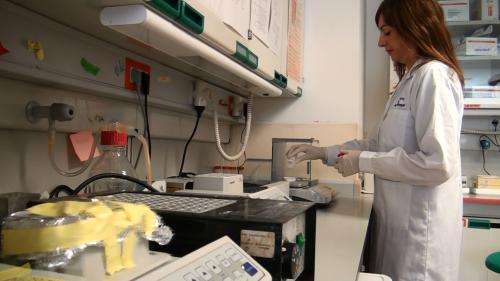Berta López Sánchez-Laorden
The researcher at the Neurosciences Institute, Joint Center of the University Miguel Hernández (UMH) in Elche and the Higher Council for Scientific Research (CSIC), Berta López Sánchez-Laorden co-authored a study that concluded that sunscreens do not protect totally against the development of skin cancer. The research was recently published in Nature.
The study demonstrates that sunscreen, even with a sun protection factor (SPF) 50, may not fully protect against the development of melanoma. According to the researcher at the UMH Berta López Sánchez-Laorden, sunscreen protects against immediate radiation damage including sunburn, but the radiation can still penetrate and damage the DNA of cells and cause cancer.
Through the use of genetically modified mice so that they were susceptible to melanoma, the researcher discovered that ultraviolet light causes mutations in the DNA of melanocytes in a gene called p53. This is one of the genes considered as guardians of the genome as it is key in detecting and repairing damage that accumulates in cells, such as the produced by ultraviolet light, and is a major barrier of the body against cancer.
Several epidemiological studies have shown an association between sun exposure and the increased risk of melanoma. However, the molecular mechanism that causes this to happen was not clear.
More information: Amaya Viros, Berta Sanchez-Laorden, Malin Pedersen, Simon J. Furney, Joel Rae, Kate Hogan, Sarah Ejiama, Maria Romina Girotti, Martin Cook, Nathalie Dhomen & Richard Marais. "Ultraviolet radiation accelerates BRAF-driven melanomagenesis by targeting TP53." Nature (2014) DOI: 10.1038/nature13298
Journal information: Nature
Provided by Asociacion RUVID























